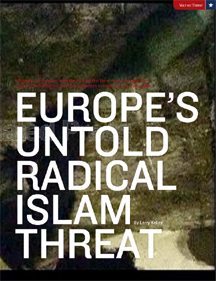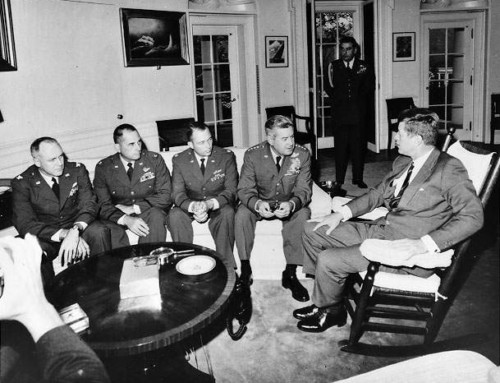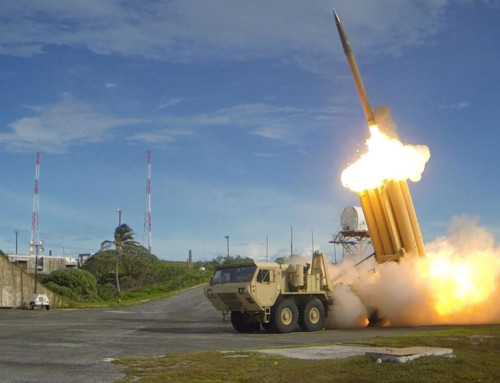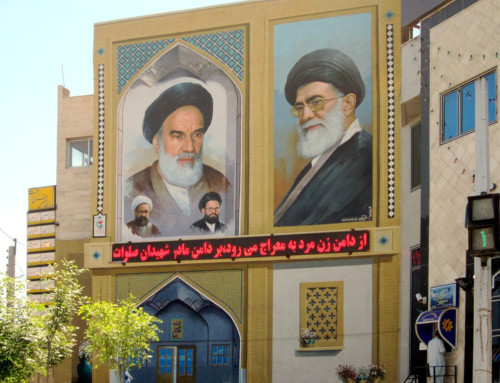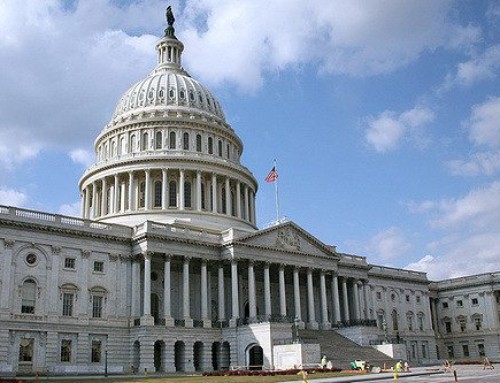Original article in Townhall Magazine (pdf)
It has been less than 100 years since Ottoman rule was removed from the European landmass, but, due to the actions of both the Clinton and Bush administrations, NATO and the EU, Islamic militants—the neo-Ottomans—are in control of two new European governments. With catastrophic consequences to follow, Western democracies went blindly to war in order to aid militant regimes now installed in Sarajevo, Bosnia, and Pristina, Kosovo, regimes allied with Iran, Syria and al Qaeda.
For more than two millennia, the inhabitants of the Balkans have been the subjects of numerous empires. The Romans referred to that area as Illyria and brought the region into their empire toward the end of the third century B.C. In ruling the Illyrians, the Romans demonstrated their genius for rapidly integrating, assimilating and commanding loyalty among their conquered subjects. Illyrians quickly found their way into the most prominent Roman societal strata, rising to become generals, senators and even emperors. However, with conquest of Constantinople in 1453, the last vestige of Rome disappeared. Its conquerors, the Turkish Ottomans, pressed their advantage and rapidly conquered vast portions of southern Europe. With the capture of Sarajevo and the beheading of the last Bosnian king in 1463, a 500-year night descended over Bosnia and the Romanized Christians of the Balkans.
 John Schindler, a long-time National Security Council (NSC) agent stationed in the Balkans, in reporting on the Western powers’ war to liberate Bosnia 1992-95, definitively catalogues in his book, Unholy Terror: Bosnia, Al-Qa’ida, and the Rise of Global Jihad, how NATO, the Clinton administration and the Western press were duped into believing that it was only the radicalized Christian Serbs who were the perpetrators of atrocities and that their Muslim enemies were innocent and defenseless. Schindler points out that the West’s blindness was due, in part, to their penchant for revisionist history—that it still is an article of faith for Western academics and their acolytes, the advocacy journalists, to believe that Muslim rule in Europe had been quite tolerant. But unlike the rule of the Romans, the Ottomans were exclusionary, oppressive and brutal.
John Schindler, a long-time National Security Council (NSC) agent stationed in the Balkans, in reporting on the Western powers’ war to liberate Bosnia 1992-95, definitively catalogues in his book, Unholy Terror: Bosnia, Al-Qa’ida, and the Rise of Global Jihad, how NATO, the Clinton administration and the Western press were duped into believing that it was only the radicalized Christian Serbs who were the perpetrators of atrocities and that their Muslim enemies were innocent and defenseless. Schindler points out that the West’s blindness was due, in part, to their penchant for revisionist history—that it still is an article of faith for Western academics and their acolytes, the advocacy journalists, to believe that Muslim rule in Europe had been quite tolerant. But unlike the rule of the Romans, the Ottomans were exclusionary, oppressive and brutal.
Seeds of Murderous Hatred
Schindler reports that today subjects living inside Muslim-dominated lands who are non-Muslim are still labeled by the Islamic faithful as “dhimmi,” defined as “the unbeliever who submits to Islam.” In Muslim Europe, the poll tax, called the “jizya,” was oppressive and imposed even on widows and orphans. Moreover, dhimmis were required to wear a parchment on their clothing that proved they had paid the latest tax, a demeaning practice later adopted by Nazi Germany. The dhimmi natives living in the Balkans or elsewhere in the Ottoman Empire were not second-class citizens as we modern Westerners understand the term: They had no rights. According to the Muslim legal code, sharia law, dhimmis had no legal standing in courts of law. They could not testify against Muslims because, by definition, they were deemed untrustworthy. Hence, Muslims could commit crimes against dhimmis with impunity. Due to Islam’s repressive sexual taboos, a common offense was rape.
If a Christian or Jew were accused of blasphemy, a Muslim accusation could not be countered and the penalty was death. Marriage or sex between Muslim women and dhimmi men was punishable by death for both parties. But the converse was not true. Muslims often took dhimmi women, employing all kinds of coercive tactics, and converted them through forced marriage. As testament to their contempt for their non-Muslim subjects, any Muslim who converted to the faith of the “inferiors” would be killed. Apostasy is still today punishable by death in much of the Muslim world.
But according to Schindler, the most hated aspect of Ottoman rule was the “devshirme,” which was the “blood tax imposed on Christians.” Schindler writes, “The Ottomans annually levied male children as tribute, every year up to one-fifth of Christian boys in Bosnia—usually aged 14 to 20—were forcibly taken from their families … and shipped to the imperial court in Istanbul to become warrior-slaves in the Janissaries, the sultan’s elite guard. … The annual levy became a focus of horror among Bosnian Christians. At a fixed date, every father had to gather his sons in the main square of the local village and allow the authorities to select the best to be sent away … resistance brought instant death … some fathers disfigured their sons to prevent their enslavement.”
Western Willful Blindness
 Susan Southworth, author of The Last Kosovo Serb Won’t Leave, a moving and frightening novel set inside Kosovo in 1999, maintains that the Clinton administration’s reckless support of the Muslim cause was also the result of willful blindness inspired by its key members’ desire to solve the Arab-Israeli conflict. According to Southworth, the Clinton administration’s Balkan adventure was their purposeful attempt to raise America’s standing in the Muslim world so that they could secure their place in history. In order to throw America’s full support behind the Muslims, they needed a massive media deception campaign aimed at vilifying the Serbs. Southworth includes in her novel’s appendix a portion of a 1993 memo by Richard Holbrook addressed to the Clinton inner circle, which says, “
Susan Southworth, author of The Last Kosovo Serb Won’t Leave, a moving and frightening novel set inside Kosovo in 1999, maintains that the Clinton administration’s reckless support of the Muslim cause was also the result of willful blindness inspired by its key members’ desire to solve the Arab-Israeli conflict. According to Southworth, the Clinton administration’s Balkan adventure was their purposeful attempt to raise America’s standing in the Muslim world so that they could secure their place in history. In order to throw America’s full support behind the Muslims, they needed a massive media deception campaign aimed at vilifying the Serbs. Southworth includes in her novel’s appendix a portion of a 1993 memo by Richard Holbrook addressed to the Clinton inner circle, which says, “
In the Bosnian conflict, neither side was innocent of widespread ethnic cleansing. But the Western media had become so wedded to their Balkans narrative that portrayed the Bosnian Muslims as the democratic heroic victims that they would not report Muslim atrocities perpetrated against Serb and Croat civilian populations.
Regarding the media’s role in the Bosnian deception, Schindler astutely observes that, in the early 1990s we saw the rise of 24/7 cable news coverage where war footage from around the world could be sent to us in real-time. But the Balkans war preceded—by just a few years—the rise of the Internet where an army of fact checkers today can allow us to know whether what we are seeing on CNN is factually correct. What the world was not told was that the Bosnian war was a very ugly civil war that included ethnic cleansing on all sides and that it was fueled by the immense hatred that had resulted from five centuries of oppression visited upon a captive population by an invader. Moreover, it was not told why the West had sided with new the invaders.
The Great Con Job
Throughout the ’90s, it should have been obvious to American policy makers that the West was being conned by Muslim officials. During the Bosnian war of 1992-95, Alija Izetbegovic was the titular head of the SDA (Party of Democratic Action), the first all-Muslim political party in the Balkans since WWII. Izetbegovic and his ministers practiced the exact subterfuge that worked so well for Yasser Arafat. He hired American PR firms to tell his story to The New York Times and CNN. When he spoke to Western reporters, his message was of tolerance, inclusion and longing for democracy. But when Izetbegovic spoke to his Muslim constituents, he spoke of the evil Christians and Jews, the glories of the new Caliphate and the Muslims’ manifest destiny to rule over the unbelievers and conquer the West.
Schindler’s book exposes another untold story of the Balkan wars in Bosnia and Kosovo. In addition to killing Serbs on behalf of the Muslims, as well as funding, training and arming their side, America and NATO succeeded in creating two new state sponsors for al Qaeda. Intelligence analysts have observed that for a large terrorist organization, such as al Qaeda, to operate, it needs three things that only a state sponsor can provide: passports and the ability to communicate through secure diplomatic channels; access to the international banking system; and significant sums of money. In Bosnia, Osama bin Laden was handed all three.
By late 1994, while the compliant Western media were publishing estimates of a coming Muslim holocaust in Bosnia, jihadists from all over the Middle East began showing up in Sarajevo and millions of dollars began pouring into Izetbegovic’s SDA coffers. In August 1995, the Saudis sent more than $100 million while also launching a building program throughout Bosnia and Kosovo where new Wahhabi mosques were constructed as recruiting centers to militarize the populace. Western intellectuals and academics contributed as well. French intellectual and raconteur Bernard Levy produced “Bosna!” for the Cannes Film festival, which lauded the courage of the Muslim fighters and was applauded by the American and European elites. James Woolsey, Clinton’s CIA director, had counseled against the arming of Muslim jihadists but was ignored and marginalized. He resigned in disgust in early 1995. Al Gore was a more avid SDA supporter than was Clinton, but it was Richard Holbrooke, the administration’s senior diplomat in charge of Balkans policy, who pushed the hardest to arm Europe’s’ secessionist Muslims and invading foreign fighters.
Holbrooke was also the point man who arranged a secret deal with Croatians to stop fighting the Bosnian Muslims and to side with them. This American-brokered alliance between the Bosnian Muslim SDA and Croatia was what allowed for the free flow of arms to the Bosnian Mujahedeen. But what made this operation so reckless was that it was all done in secret without congressional approval and, like the Iran-Contra affair, it involved contracting with the Iranians to supply the weapons. The Iranians, who were eager to get a strong foothold inside Europe, quickly responded with massive shipments of guns and explosives. Immediately after Holbrooke’s accord, the Iranian embassy in Sarajevo grew exponentially and was strictly off limits to U.N. personnel. Croatia took its cut on the arms shipments, their fee for handling the delivery of arms from Iran to the Mujahedeen. Although President Ronald Reagan was excoriated for his administration’s running an almost identical operation, the Clinton administration was given a free pass on Iran-Bosnia, a demonstration of the partisan duplicity of congressional oversight committees.
Bin Laden’s Bosnian Period
Schindler also makes the point that if al Qaeda was born in Afghanistan, it was fully globalized by the Bosnian jihad. While in Afghanistan, bin Laden was only a lieutenant and was overshadowed by Abdullah Azzam. In Bosnia, with massive amounts of arms and funds supplied by both the West and Middle East at his disposal, he learned how to recruit and command a terrorist army and fashioned al Qaeda into a flexible, well-trained, international jihadist organization. He built a model and refined a message for the export of terror worldwide. All of the key players in the Sept. 11 attacks—bin Laden, Ayman al Zawahiri, his second in command, and Khalid Sheik Mohammad, the operational planner of the attacks—fought in the Bosnian jihad and received Bosnian passports.
The Bosnian embassies in Sarajevo, Zagreb and Vienna issued thousands of Bosnian passports and citizenship papers to terrorists from virtually every Muslim country from Lebanon to Tunisia to Iran, providing Islamic contract killers with false identities and the freedom to move about the globe. After the Dayton Accords were signed and most of the Western reporters left Sarajevo, SDA officials wasted no time in expelling Serbs who remained inside the Muslim-governed areas of Bosnia while their most influential imams preached hatred of the infidel. Bosnia’s Islamic leaders had conned the entire West and had no intention of allowing any interference in their new Islamist statelet.
Kosovo and the Big Lie
In spring 1999, just six months after al Qaeda had blown up our embassies in Africa, the Clinton administration was poised to back another jihad in Europe, this time supporting the KLA (Kosovo Liberation Army), which was attempting to wrest Kosovo from Christian Serbia.
As Southworth records in the appendix of her book, on April 20, 1999, the State Department issued a dire warning: “At least 100,000 and possibly 500,000 Kosovo Albanian men are unaccounted for.” The Clinton administration, NATO and the Western press led the world to believe that the Serbian army had invaded its southern province, attempting to ethnically cleanse Kosovo of all Muslims (the term “ethnic Albanians” was their incessant obfuscation).
The reality was utterly different. The KLA were Albanian military brigades and were the aggressors. It was they who, a year earlier, attacked Kosovo from their camps in neighboring Albania with the objective of freeing the province of Serbs and Serbian rule. And, like their jihadist neighbors, to the north, the KLA ranks were swelled by Mujahideen from as far away as Chechnya, Algeria and Iran. One KLA volunteer interviewed by a Dutch journalist stated that it was his “eighth jihad.” Once again, the Clinton administration backed a Jihadist invasion of Europe.
That spring, NATO began a 78-day bombing campaign, hitting Serb military positions in Kosovo and key infrastructure locations in Belgrade (including the Chinese Embassy). For the second time in five years, the West attacked a country that had fought at its side in two world wars and was fighting an armed insurrection inside its borders, even though Serbia threatened no NATO country. Human Rights Watch determined that 500 Serbian civilians were killed in the bombing.
Terrorists’ Paradise
The bombing of Serbian forces and the country of Serbia achieved the objective of the neo-Ottoman KLA. Most of the Serbian Christian population of Kosovo fled to Serbia. This left the province, as journalist Christopher Deliso puts it, “a perfectly cleansed Muslim statelet with very porous borders, a smuggler’s and terrorist’s paradise.” Southworth points out that, after the war, U.N. and NATO officials quietly ascertained that there were not any mass graves to be found in Kosovo, no evidence of the 500,000 Muslims killed, as was originally “feared.” The Muslim losses totaled only 2,000 and were largely combatants killed in the fighting, a small number, given that they were the aggressors.
The U.N. and NATO commissions found that it was the KLA, under the command of Kosovo Albanian Ramush Haradinaj, that had committed war crimes and on a massive scale. Although he was elected prime minister in November of 2006, three months later, he was indicted by The Hague and imprisoned. His unprecedented 37-count indictment was said to be the most gruesome ever brought before the War Crimes Tribunal. But several of the witnesses who were scheduled to testify against Haradinaj died before the trial could begin, some of them victims of “unfortunate accidents,” as described by some journalists. He was acquitted and Kosovo is a de facto independent state. Prior to his indictment, Haradinaj was living in a mafia-style mansion commensurate with his position as an Islamic underworld boss running a European port of entry for heroine, sex slaves, protection rackets and jihadists.
Like his counterparts in Sarejevo, Haradinaj is today the leader of the opposition party, the Alliance for the Future of Kosovo, and is still playing a double game. He will tell the West what it longs to hear—that he favors tolerance, democracy and peace—while he will do the bidding of the international jihadist networks. While gathering strength to intimidate and ultimately subdue the voices of moderation within his country’s Muslim leadership, he will aid in plotting radical Islam’s next big attack.

